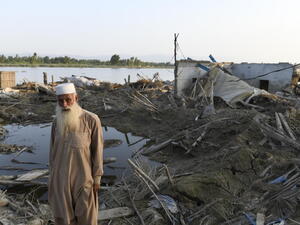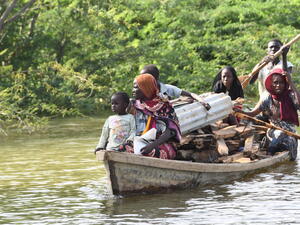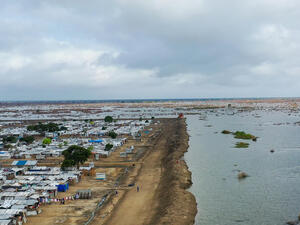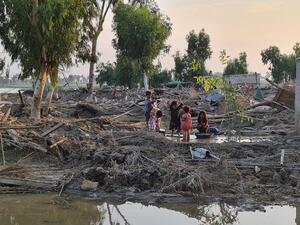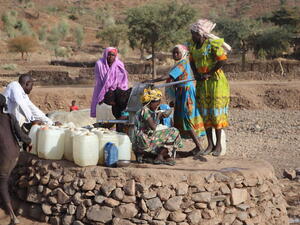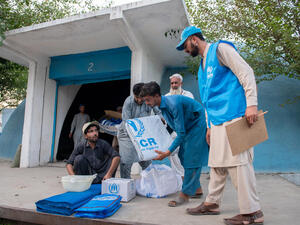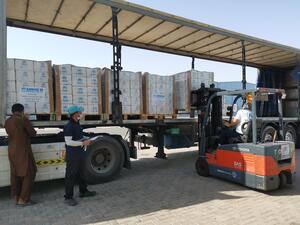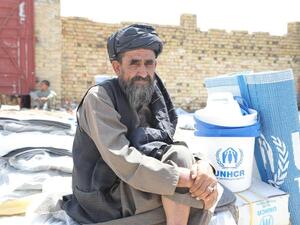Emergency assistance to victims of floods in Chad
Emergency assistance to victims of floods in Chad
Floods have affected large areas of Chad since mid-July, following the heaviest rainfall recorded in forty years. Up to 9000 people are believed affected. UNHCR is currently distributing essential survival items including blankets, plastic sheeting, and bed mats to around 2,500 families. This emergency help comes as a contribution to the ongoing national effort, under the coordination of the Chadian government, to which other UN agencies and NGOs are also participating.
The flooding follows two years of drought. Torrential rains, while bringing hope to some for a productive farming season, have in other places destroyed entire villages and inundated cultivated land.
Large areas are affected by the flooding. At least 1,800 families are homeless in the northern town of Faya Largeau. No region has been spared, with particularly heavy rains in the North (Tibesti, Ennedi), West (Bongor), South-East (Salamat) and East (Darh Sila region). Some districts of the capital N'Djamena are also affected.
UNHCR is also tapping into its stocks to dispatch relief items to areas where we have an established field presence to support refugees and internally displaced persons, such as Goz Beida, Koukou, the Darh-Sila region, and Adre in the Ouaddai region.
In Goz Beida, shelter and other relief have supplies have been distributed to the 416 families who are affected by the floods. Among the local population, about a thousand people had to be relocated, some hosted by neighbours or in schools. For families at risk, an interim site has been identified, although many are reluctant to leave their homes behind. Thirty kilometres from Goz in Koukou-Angarana 47 families recently had to flee their homes, while in Habile 154 families have been warned that their homes are under threat. In the past few days, in Hille Djedid camp for internally displaced persons, located near Adre, we have received reports that a number of families have had to flee their homes as the river banks overflowed. UNHCR participates in local crisis committees to encourage families at risk to relocate
UNHCR operations as a whole have been hampered throughout Chad. Several of our vehicles were washed away by raging waters in overflooded wadis (riverbeds), and our staff are regularly cut off - some having to overnight on the road - en-route to refugee or IDP sites.


